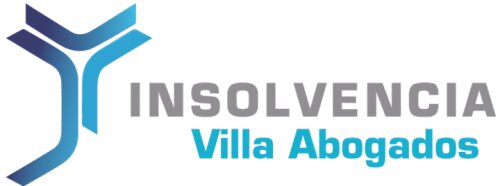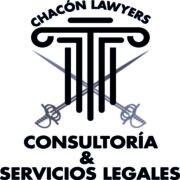Best Tax Increment Financing Lawyers in Bogota
Share your needs with us, get contacted by law firms.
Free. Takes 2 min.
List of the best lawyers in Bogota, Colombia
About Tax Increment Financing Law in Bogota, Colombia
Tax Increment Financing, known locally as Financiación basada en el Incremento del Valor del Terreno (often referred to as TIF or “financiación de valorización”), is a public financing method used by municipalities in Colombia, including Bogota, to fund urban development and infrastructure projects. Through this mechanism, the city captures a portion of the increase in property values generated by public investments and uses those funds to repay the costs of the improvements. TIF has been incorporated into Colombian fiscal and urban development strategies since the early 2000s, with legislation and regulations managed at both the national and local (distrital) levels. In Bogota, it is a key part of urban renewal and infrastructure projects.
Why You May Need a Lawyer
Navigating Tax Increment Financing in Bogota can be complex due to a web of legal, tax, and urban planning regulations. You may need assistance from a legal professional if you:
- Are a property owner affected by a TIF district or urban renewal project
- Represent a real estate developer looking to participate in TIF-funded projects
- Operate a business within an area designated for TIF financing
- Need to understand or challenge an assessment or special levy due to TIF implementation
- Want to participate in public hearings or engage with local government processes
- Require guidance on compliance with national and municipal TIF regulations
- Are interested in public-private partnerships related to infrastructure financing
- Have received an official notice about property taxes or contributions connected to TIF
- Face disputes over property valuation or compensation as a result of TIF projects
A qualified lawyer can help interpret your rights and responsibilities, represent you in legal proceedings, and ensure you are compliant with applicable laws.
Local Laws Overview
Tax Increment Financing in Bogota is subject to a combination of national legislation, local (district-level) regulations, and specific development plans. Key aspects include:
- The enabling legal basis stems from Law 388 of 1997 (Ley de Ordenamiento Territorial) and related decrees that establish the framework for valorization and public financing tools.
- The local government, through the Instituto de Desarrollo Urbano (IDU) and the Secretaría de Hacienda Distrital, oversees the selection of project areas, calculation of increment values, and the management of funds.
- TIF is often used for urban renewal, transport infrastructure, public space, and other major city works. Projects are proposed in the Plan de Ordenamiento Territorial (POT) and other city planning instruments.
- Special levies or contributions (contribución de valorización) are assessed on property owners who benefit from the improvements, based on detailed technical studies and benefit-cost analyses.
- Legal procedures exist for challenging valuations, appealing levies, and participating in public consultations.
- Transparency and public participation are mandated by law, but the administrative process can be complicated and subject to deadlines.
- International investors or non-residents face additional compliance requirements.
Frequently Asked Questions
What is Tax Increment Financing (TIF) in Bogota?
TIF in Bogota is a financing tool where the city uses future increases in property values (generated by public investments) to pay for urban infrastructure, distributing part of the cost among property owners who are considered to benefit from those improvements.
Who administers TIF projects in Bogota?
The main public entities involved are the Instituto de Desarrollo Urbano (IDU) and the Secretaría de Hacienda Distrital, although other agencies may participate depending on the type of project.
How are the affected areas and beneficiaries determined?
Technical studies identify which geographic areas and property owners are likely to benefit from planned public works. These studies inform the assignment of levies.
How is the amount of the levy calculated?
A special assessment is based on the projected increase in property values linked to the public investment, distributed in proportion to each beneficiary’s gain.
Can I challenge or appeal the assigned amount?
Yes. Property owners may challenge the valuation or the levy through administrative procedures. These must be initiated within specific time frames as outlined in the notice or the relevant legislation.
What happens if I do not pay the levy?
Unpaid levies can result in penalties, interest, and eventually legal actions including liens or public auctions of the property to recover the amount due.
Are there exemptions or discounts available?
Certain categories of property owners, such as social interest housing or charitable institutions, may qualify for exemptions or reduced rates. Consult the regulations or a lawyer for eligibility criteria.
Can TIF affect my property taxes?
TIF levies are separate from annual property taxes, but both may apply, and TIF could increase your overall payments if your property is within a TIF district.
What is the process for public participation in TIF decisions?
By law, the process includes opportunities for public comment, participation in hearings, and access to project documentation, though engagement often requires proactive involvement.
Can non-residents or foreign investors participate in or be affected by TIF?
Yes. All property owners within designated zones, regardless of nationality or residence, are potentially subject to levies and may have rights and obligations under the law.
Additional Resources
If you need further information or assistance, the following entities and resources are useful:
- Instituto de Desarrollo Urbano (IDU): Responsible for major public works and urban financing
- Secretaría de Hacienda Distrital: Manages tax policy and public revenues, including TIF levies
- Superintendencia de Notariado y Registro: Oversees property records and legal documentation
- Agremiaciones de Propietarios y Constructores: Provide representation and information for property owners and developers
- Defensoría del Pueblo: Offers legal guidance and protects citizens’ rights in administrative procedures
- Legal libraries and law faculties of local universities: Frequently publish guides and provide community legal clinics
- Bogota’s official city website and urban development portals: Publish notices of new projects and public consultations
Next Steps
If you need legal assistance regarding Tax Increment Financing in Bogota:
- Gather all documentation related to your property, correspondence from public entities, and notices of assessments or levies.
- Consult with a qualified lawyer specializing in urban law, tax law, or administrative law in Bogota. Many professionals offer initial consultations to review your situation.
- If you seek to challenge a levy or participate in a public hearing, be aware of all deadlines and procedures. Legal representation can help meet requirements and improve your chances of a favorable outcome.
- Stay informed through official channels regarding new projects and opportunities for input. Many TIF processes are public, but require your active participation.
- If cost is a concern, seek advice from legal aid clinics or public interest organizations that may assist with urban financing issues.
Legal processes involving TIF can be complex and time-sensitive. Early engagement with professional advice will help protect your rights and interests.
Lawzana helps you find the best lawyers and law firms in Bogota through a curated and pre-screened list of qualified legal professionals. Our platform offers rankings and detailed profiles of attorneys and law firms, allowing you to compare based on practice areas, including Tax Increment Financing, experience, and client feedback.
Each profile includes a description of the firm's areas of practice, client reviews, team members and partners, year of establishment, spoken languages, office locations, contact information, social media presence, and any published articles or resources. Most firms on our platform speak English and are experienced in both local and international legal matters.
Get a quote from top-rated law firms in Bogota, Colombia — quickly, securely, and without unnecessary hassle.
Disclaimer:
The information provided on this page is for general informational purposes only and does not constitute legal advice. While we strive to ensure the accuracy and relevance of the content, legal information may change over time, and interpretations of the law can vary. You should always consult with a qualified legal professional for advice specific to your situation.
We disclaim all liability for actions taken or not taken based on the content of this page. If you believe any information is incorrect or outdated, please contact us, and we will review and update it where appropriate.














